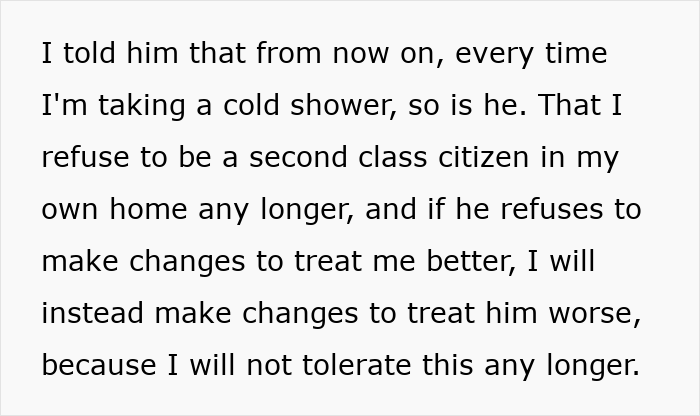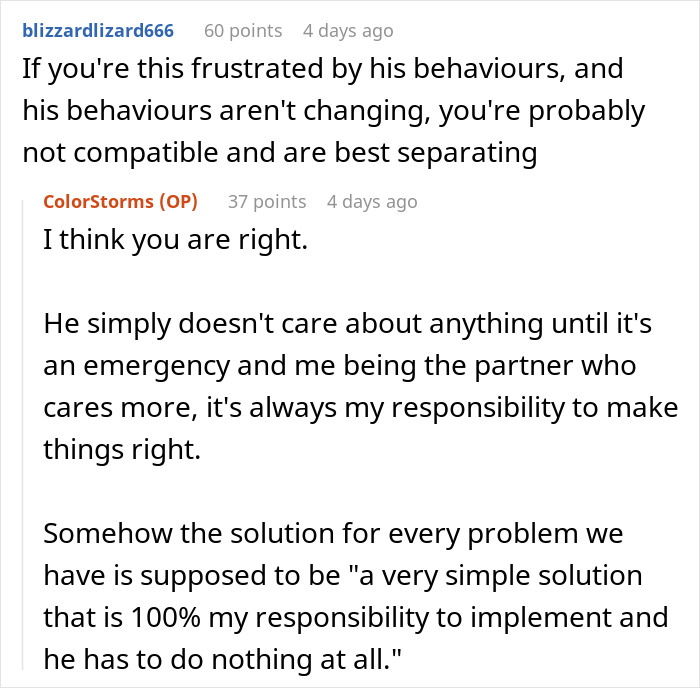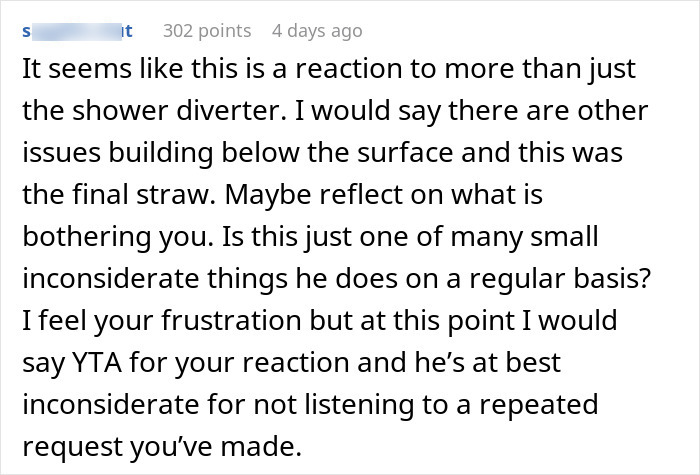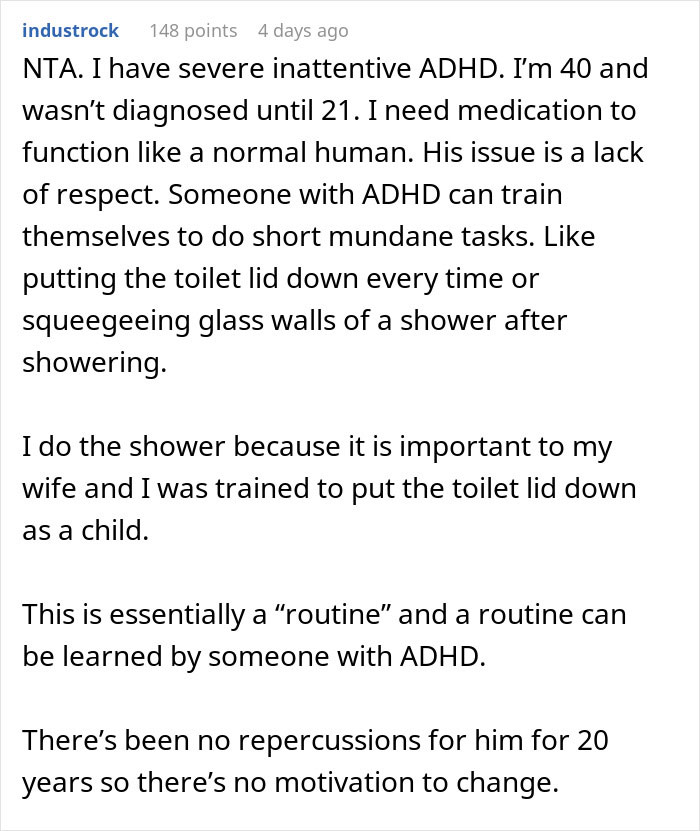Small conflicts over time tend to be so much more than the sum of their parts. This is perhaps one reason why communication is key in any relationship, as, without it, little things end up going unaddressed and those little things pretty quickly spiral out of control.
A woman turned to the internet for advice after having it up to here with her husband constantly leaving the water in their shower on cold and deciding to get revenge. Her plan, as it turns out, was somewhat controversial, as netizens debated its ethics in the comments. We reached out to the woman who made the post via private message and will update the article when she gets back to us.
Domestic frustrations can, at times, really boil over

Image credits: Getty Images / Unsplash (not the actual photo)
So one woman decided to get revenge on her husband by throwing water at him





Image credits: Carmen Laezza / Unsplash (not the actual photo)





Image credits: Blake Cheek / Unsplash (not the actual photo)



Image credits: ColorStorms

Image credits: Getty Images / Unsplash (not the actual photo)
Little things can really add up
In the daily course of things, it’s usually the little disagreements, a leaky faucet left unfixed, a misplaced coffee cup that necessitates an extra step to the sink, a gruff “fine” growled across the breakfast table, that are insignificant by themselves but, cumulatively, over time, start to take a heavy toll on a relationship. A tendency for one partner to leave the shower on cold can make the other feel disrespected. There are other examples, a forgotten shopping trip, dirty dishes left out or the infamous toilet seat left up.
Because these kinds of conflicts are so mundane, they rarely result in a genuine exploration of underlying needs or feelings. Instead, they percolate underground like slow-dripping faucets in the basement, each drop barely noticeable in itself but collectively with the potential to flood the foundation. A morning’s annoyance, a.k.a. listening to your partner slam a kitchen cabinet, can come to represent a general charge of carelessness or insensitivity. When the real issue is burnout or workplace stress from an never-ending to-do list, these small infractions are a proxy for unmet underlying needs but are not named and resolved.
Over time, the tally of grievances increases until it becomes impossible to enjoy the luxury of a lazy Sunday morning or the love in shared laughter at a television program. Instead, every minor mishap, an unmade bed, a forgotten appointment, a lipstick-stained coffee cup on the bedside table, reopens old sores. What begins as isolated disagreements snowballs into a running script of “Here we go again,” with each partner waiting for the next oversight or insensitive comment. The cumulative weight of these incidents erodes trust: promises to do better (“I’ll clean up right after dinner,” “I’ll remember this time”) lose their power when they go unfulfilled so often that they feel meaningless.

Image credits: Getty Images / Unsplash (not the actual photo)
Resentment doesn’t just go away
As the pattern intensifies, arguments escalate more quickly, apologies feel perfunctory, and minor irritations metastasize into arguments over everything from household budget allocations to in-laws’ holiday plans. Partners find themselves bristling at neutral remarks, perceiving criticism where none was intended. Emotional distance grows: instead of looking to each other for solace in difficult times, each looks elsewhere for comfort or closes off altogether. Intimacy, both physical and emotional, suffers when a lingering impression of “you don’t care about me” poisons the relationship, even if it began over something as trivial as the wrong brand of dish soap having been purchased.
Yet this cycle is not inevitable. Couples who stop, even when they are irritated, and push themselves to inquire what is really at stake begin to derail the toxic cycle. Is the wet towel on the floor really about slovenliness, or is it a plea for shared responsibility when both partners are overwhelmed? Does the forgotten grocery list really signify a deficiency of caring, or is it a sign that one person’s cognitive bandwidth has been stretched too thin? By speaking the feelings beneath, resent, fatigue, isolation, fear, partners allow empathy to arise, converting complaint to compassion.
At the same time, this relationship seems to have some major, major communication problems. This is perhaps one of the reasons readers were conflicted on if she was the “jerk” in this situation or not. Just throwing water at your spouse is pretty questionable behavior. The real discussion was about how justified (or unjustified) it actually was. Some saw it as the breaking point of a very toxic relationship, others saw it as her being unable to just take a second to look at a facet before showering.
She shared some more overarching thoughts on her marriage in the comments

Some thought she overreacted
















Others thought this marriage had issues


A handful of readers thought her anger was justified





Later, she gave a few more details




from Bored Panda https://ift.tt/GiDpoyS
via IFTTT source site : boredpanda